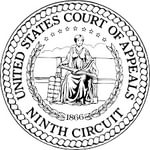
NEWS (8/19/20) — California: The U.S. Court of Appeals for the Ninth Circuit released habeas corpus appeal decisions in two capital cases involving California death-row prisoner Martin Kipp, overturning his conviction in a case prosecuted in Orange County and upholding his conviction and death sentence in a Los Angeles County case.
In granting a new trial in the 1983 Orange County murder of a 19-year-old woman, a 2 – 1 panel of the circuit court held that the trial court violated Kipp’s due process rights by permitting the prosecution to present evidence of the unadjudicated Los Angeles murder under the theory that there was a “highly distinctive pattern” between the two crimes. The panel found that the state court’s distinctive-pattern finding was an unreasonable determination of the facts because the state court misstated the record in reaching the conclusion that the condition in which the bodies were discovered was “unusually similar” and ignoring evidence presented by Kipp supporting his claim that the murders were “too dissimilar to support [the] inference of connection by common identity or intent” necessary for the Los Angeles case to be admissible in the Orange County trial.
The same three-judge panel unanimously upheld Kipp’s conviction and death sentence in the rape and murder of an 18-year-old college student in Los Angeles County three months earlier. The court rejected Kipp’s claims that the court unconstitutionally permitted the prosecution to present personal letters to his wife in which he admitted to sexually assault and murder, denigrated the victims, and made references to Satan. It ruled that even if presenting the references to Satan to the jury was unconstitutional, the error was harmless because it did not have “a substantial and injurious effect” on the jury’s verdict. The court similarly rejected Kipp’s claim that his trial counsel was ineffective in failing to object to the introduction of the letters.
The court avoided determining the constitutionality of a juror’s conduct in bringing a Bible into the jury room and reading Bible verses to the jury, again holding that any constitutional error would have been harmless. Finally, it rejected Kipp’s claim that his penalty-phase counsel was ineffective for failing to investigate and present mitigating evidence, holding that the California courts’ conclusions that counsel’s performance was not deficient and did not cause prejudice were not unreasonable.

NEWS (8/18/20) — Texas: The U.S. District Court for the Southern District of Texas has granted a new trial to death-row prisoner Travis Green. The court ruled that Green, who was convicted and sentenced to death in 2000 in Harris County for a September 1999 murder, had been permitted to waive counsel and proceed to trial while incompetent. The court also found that penalty-phase counsel was ineffective when, after being appointed the day before the penalty phase when Green re-invoked his right to counsel, he failed to request a continuance, a competency hearing, or appointment of a mental health expert and failed to present any mental health evidence in mitigation.
The federal court also found that Green’s court-appointed direct appeal and state post-conviction counsel were ineffective for failing to raise the competency issue and that post-conviction counsel had abandoned Green altogether, permitting the federal court to reach issues raised for the first time in federal habeas proceedings.

NEWS (8/18/20) — Ohio: The Ohio Supreme Court has upheld two death sentences imposed on Anthony Kirkland for the rapes and murders of two teenage girls in Hamilton County (Cincinnati) in 2006 and 2009. Kirkland pled guilty and was sentenced to 70 years to life in two other murders. Kirkland was convicted and sentenced to death in 2010, but the Ohio Supreme Court overturned his death sentences in 2016. On remand in 2018, the jury again recommended and the trial court again imposed the death penalty for each murder.penalty for each murder.
The appeals court rejected Kirkland’s challenge to the exclusion of numerous jurors based upon their expressed reluctance to impose the death penalty, crediting the trial court’s finding that the jurors would have substantial impairments in their ability to follow the law. It also rejected an undeveloped claim that penalty-phase counsel should have presented testimony from family members to corroborate his claims that Kirkland had been the subject of childhood abuse and neglect. “Kirkland’s claim regarding his family rests on speculation,” the court said. “Nothing in the record shows what testimony his relatives would have given had they taken the stand.”

NEWS (8/1/20) — Arizona: The Arizona Supreme Court has vacated a trial court pretrial ruling that Mexican national Apolinar Altamirano is ineligible for the death penalty because of intellectual disability. Prosecutors objected to the lower court’s ruling, arguing that the court had failed to adhere to the Arizona statutory definition of intellectual disability, which, they said, “requires an overall assessment of Altamirano’s ability to meet society’s expectations of him.” Although the U.S. Supreme Court has repeatedly struck down statutory attempts to engraft additional, nonscientific requirements to the clinically accepted standards for determining intellectual disability, the Arizona Supreme Court reversed the trial court.

